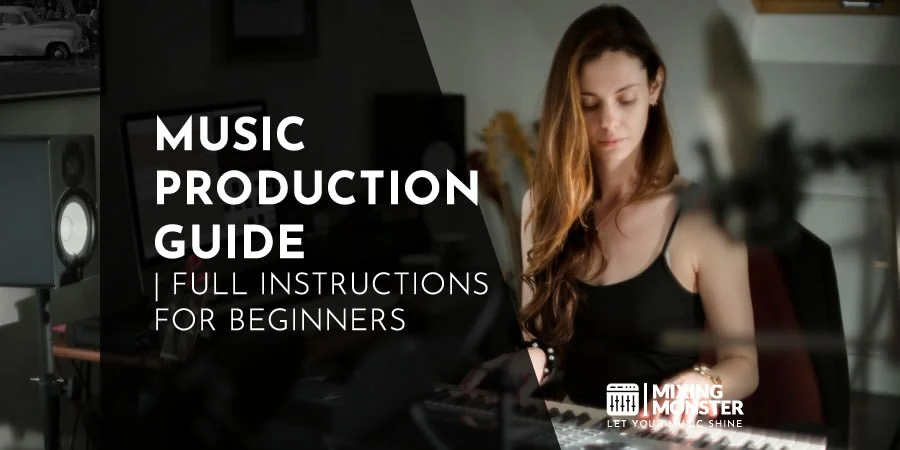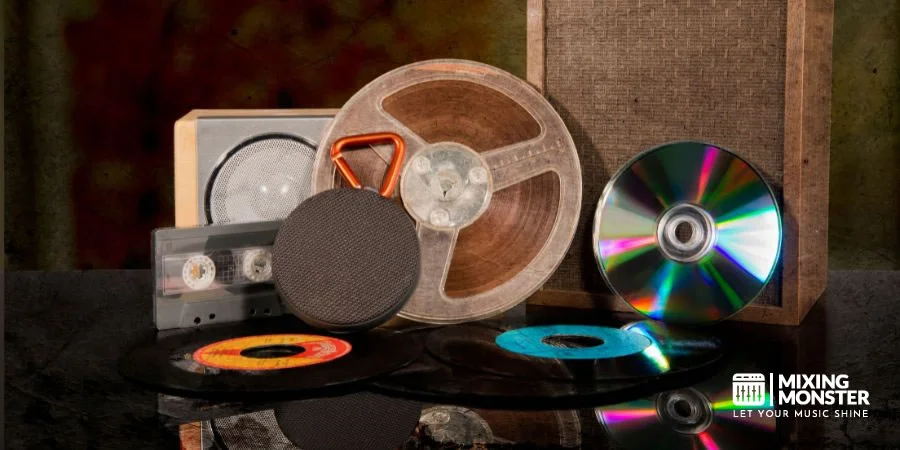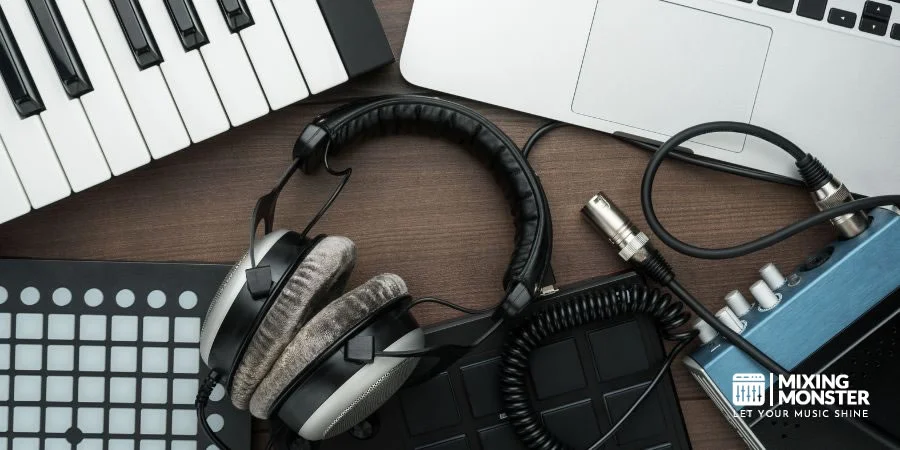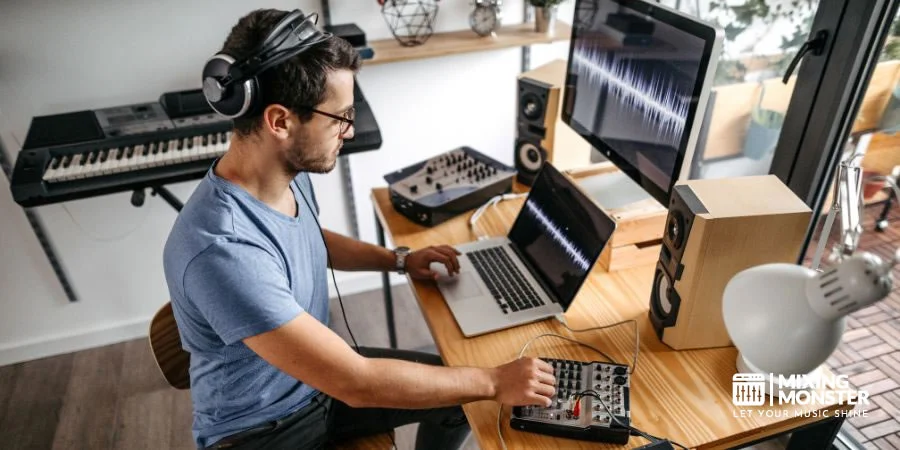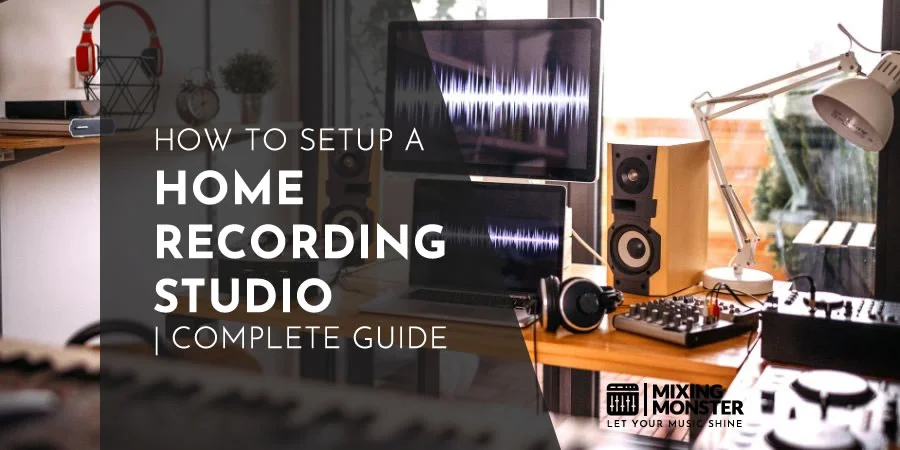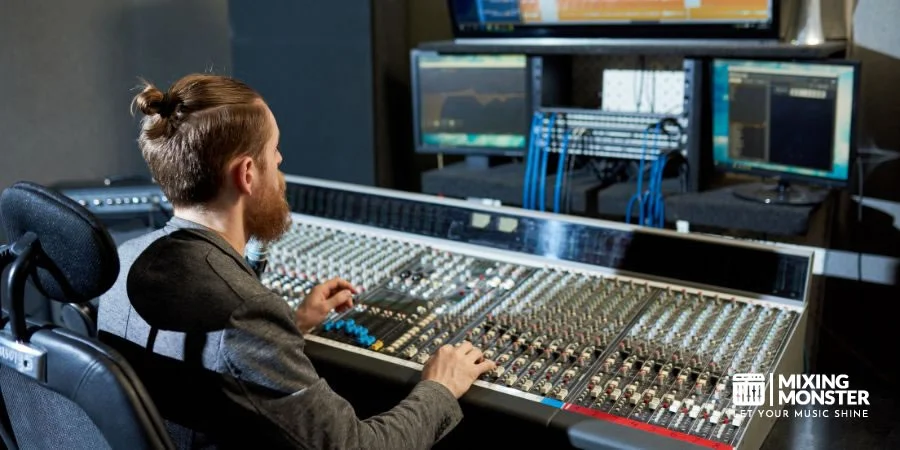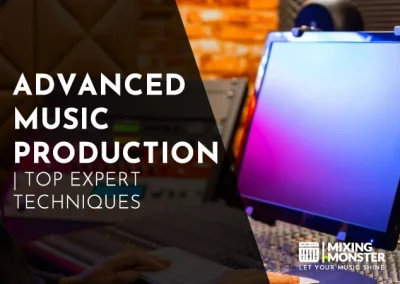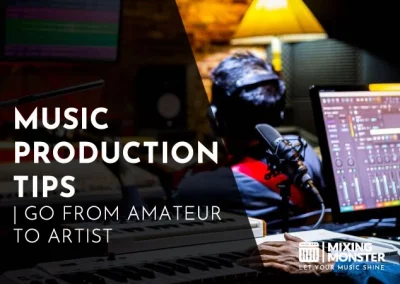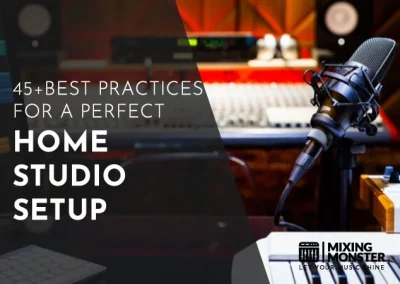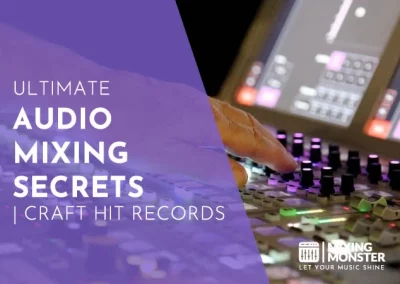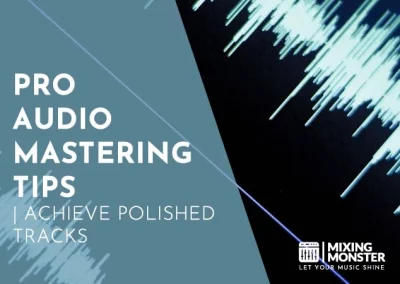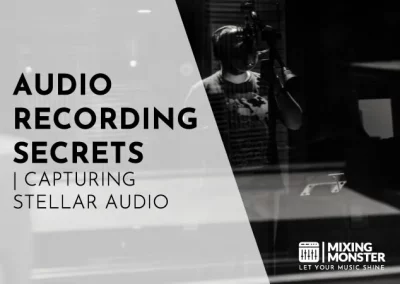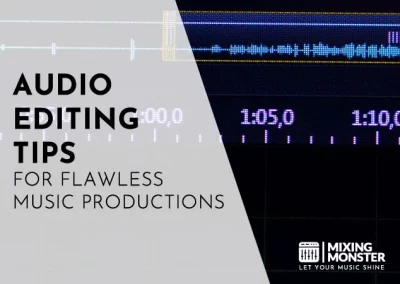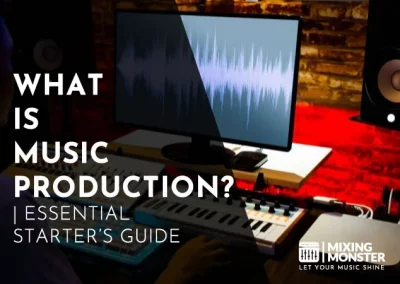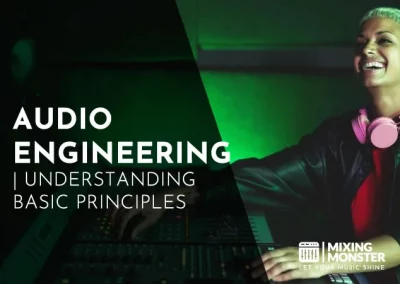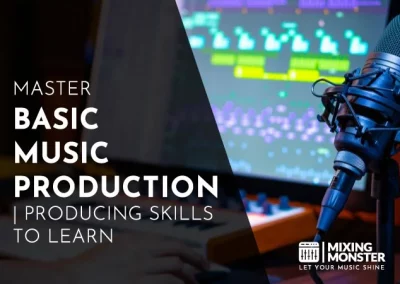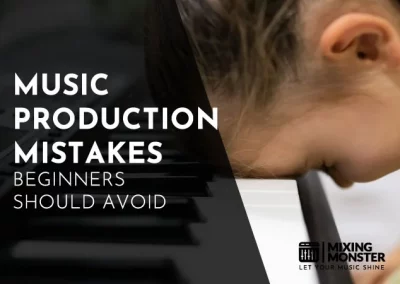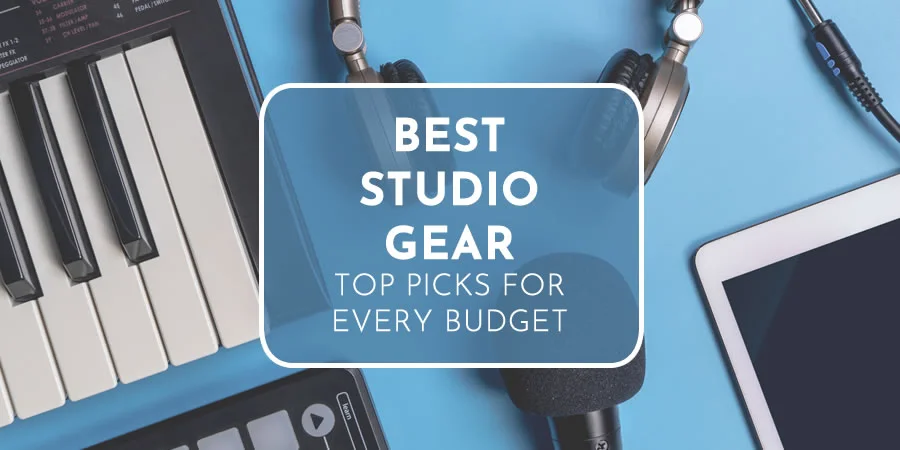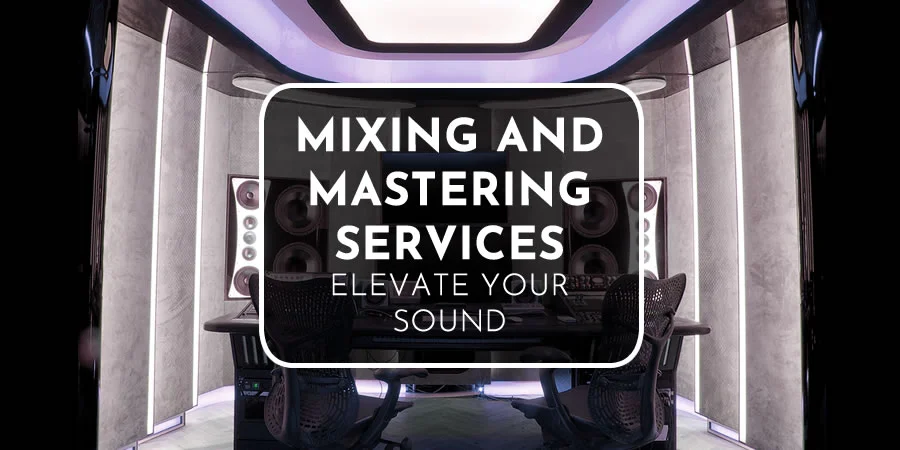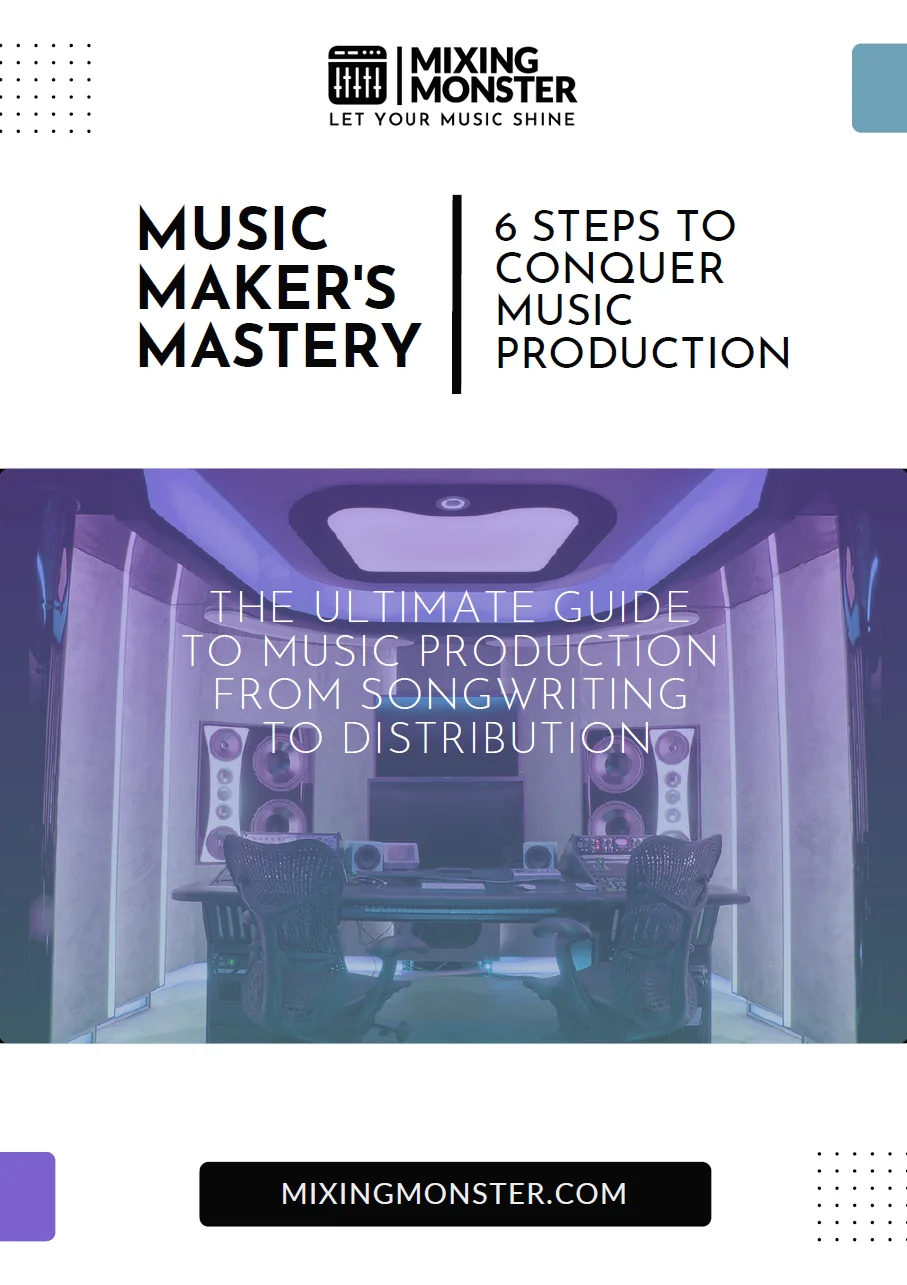Home > Blog > Music > Music Production
Affiliate Disclaimer: We may earn a commission if you purchase through our links
Welcome to the ultimate guide to music production, your go-to resource for kickstarting your journey into the world of music creation. We’ve compiled a comprehensive set of instructions, tips, and insights to help beginners navigate the exciting process of transforming ideas into polished tracks, ensuring you hit all the right notes as you embark on your creative adventure.
Music production for beginners involves learning key concepts and techniques, setting up a home studio with essential equipment, and mastering various stages of the production process. This guide covers producing, recording, editing, mixing, and mastering, providing a comprehensive introduction to the exciting world of music creation.
Are you ready to unlock your potential as a music producer and bring your sonic visions to life? Dive into our music production guide, where you’ll uncover a treasure trove of knowledge and expert tips that will set you on the path to creating masterpieces from scratch.
Table Of Contents
1. Music Production Overview
2. Music Production Basics And Goals
3. Essential Equipment For Music Production
4. Setting Up Your Home Recording Studio
5. The Music Production Process
6. 10 Music Production Tips For Beginners
7. Growing Your Music Production Skills
8. The Journey Of Becoming A Successful Music Producer
9. FAQ

1. Music Production Overview
The Evolution Of Music Production
The evolution of music production has been marked by constant innovation. Technology has played a crucial role in shaping how music is created and experienced, from early phonographs to magnetic tape and multi-track recording.
The digital revolution introduced digital audio workstations (DAWs) and the internet, democratizing music production and providing unprecedented access to resources and collaboration.
As cutting-edge technologies continue to emerge, the landscape of music production will keep evolving, opening new creative possibilities and making it more accessible to aspiring creators worldwide.
The Importance Of Music Production
Music production is an integral part of the creative process, transforming raw ideas into polished, professional-sounding tracks that resonate with audiences.
A skilled producer brings artistic vision to life, balancing technical prowess with creative intuition to enhance a song’s emotional impact and sonic character.
In the modern music landscape, production plays a crucial role in defining an artist’s signature sound, allowing them to stand out in a crowded market. Well-produced music can captivate listeners, create immersive soundscapes, and evoke powerful emotions, enriching the listening experience.
Additionally, music production contributes to the cultural and economic value of the music industry, fostering innovation and generating revenue through creating and distributing high-quality recordings.
As the music industry continues to evolve, the role of music production remains central to the ongoing development and success of artists and their work.
2. Music Production Basics And Goals
When starting your music production journey, it’s crucial to grasp the fundamentals, including the role of a music producer and the goals of music production.
Understanding The Role Of A Music Producer
A music producer oversees and guides the creative process of a song, album, or other musical projects. They collaborate closely with artists, musicians, and engineers to shape the project’s sound and direction, from pre-production planning to final mastering.
Music producers play various roles, such as arranger, sound designer, and sometimes even songwriter. They make essential decisions about instrumentation, arrangement, and sonic textures, ensuring the final product is polished and captivating.
The Goals Of Music Production
Music production aims to bring together a creative vision, technical expertise, and collaboration to craft engaging and memorable sonic experiences for listeners. The primary goals of music production can be summarized as follows:
- Capturing The Artist’s Vision:
Producers work to understand and convey the essence of an artist’s vision, shaping the sound and direction of a project to reflect their unique identity and style. - Creating A Cohesive Sound:
One of the main objectives in music production is to develop a well-balanced and polished final mix, ensuring that all elements of a track work together harmoniously and complement each other. - Enhancing Emotional Impact:
Music producers strive to amplify the emotional resonance of a piece, using their creative intuition and technical skills to highlight the most powerful and evocative aspects of a performance. - Facilitating Collaboration:
A successful music production process involves effective communication and collaboration between artists, engineers, and other team members, ensuring that everyone’s expertise is harnessed to create the best possible end product. - Adapting To Technological Advances:
Music producers must stay up-to-date with the latest tools and techniques, incorporating new technologies and approaches to remain innovative and relevant in the ever-evolving music industry.
3. Essential Equipment For Music Production
Digital Audio Workstation (DAW)
A DAW software application records, edits, and produces audio files. Popular DAWs include Ableton Live, FL Studio, Logic Pro, and Pro Tools. Each has its strengths and weaknesses, so finding the one that best fits your workflow and budget is essential.
Audio Interface
An audio interface is a crucial piece of hardware that connects your instruments and microphones to your computer. It converts analog signals into digital ones, allowing you to record and manipulate your sound within your DAW. Look for an interface with enough inputs and outputs to accommodate your setup and high-quality preamps for optimal sound quality.
Studio Monitors And Headphones
Accurate monitoring is essential for making informed decisions during the music production process. Invest in quality studio monitors and headphones to ensure you can hear every detail of your mix.
Microphones
In music production, microphones play a crucial role in capturing the nuances of an artist’s performance, whether it’s a vocal track or the sound of an instrument. They allow producers to accurately record and reproduce the desired audio, providing the foundation for further audio processing stages.
MIDI Controllers And Instruments
MIDI controllers, such as keyboards and drum pads, allow you to input musical information into your DAW quickly and efficiently. They can also be used to control virtual instruments, providing a tactile and expressive way to create music.
Acoustic Treatment
Acoustic treatment plays a vital role in music production by enhancing the accuracy and clarity of sound within a recording or mixing environment. By controlling reflections, reducing reverberation, and minimizing standing waves, acoustic treatment ensures that producers and engineers can make more precise decisions throughout production.
4. Setting Up Your Home Recording Studio
Creating a functional recording studio is crucial for music production. Consider these aspects when setting up your studio: planning your space, acoustic treatment and soundproofing, and organizing equipment and workflow.
#1 Planning Your Studio Space
Choose a suitable space based on room size, shape, and location, considering acoustics and potential noise disturbances. Larger spaces accommodate more equipment, while irregularly shaped rooms can minimize problematic reflections.
#2 Acoustic Treatment And Soundproofing
Optimize acoustics by soundproofing and treating your space. Soundproofing isolates the studio from external noise and prevents sound leakage. Techniques include adding mass to walls, sealing gaps, and decoupling to minimize vibrations.
Acoustic treatment controls sound reflections within the room. Absorptive materials like foam panels or bass traps reduce reverberation and standing waves, enhancing sound quality and accuracy.
#3 Organizing Your Equipment And Workflow
Organize essential equipment such as a computer, DAW software, audio interface, studio monitors, headphones, microphones, and cables. You may also need MIDI controllers, synthesizers, outboard gear, and virtual instruments.
Arrange your equipment to promote an ergonomic and efficient workflow. Position your computer, audio interface, and monitors centrally, with the listening position forming an equilateral triangle with the monitors.
Keep frequently used equipment within reach and store less-used gear. Organize and label cables to avoid clutter.
Investing time in planning your studio space, implementing acoustic treatment and soundproofing, and organizing equipment will result in a comfortable, inspiring environment for creating high-quality music.
Here is a complete guide about how to set up a home recording studio:

5. The Music Production Process
The music production process consists of several stages, each crucial in crafting a professional-sounding final product. To better understand this process, let’s explore stages of music production in detail:
#1 Pre-Production
Pre-production is the planning phase of the music production process. During this stage, artists and producers define the project’s goals, determine the overall sound, and make essential creative decisions.
This may involve selecting songs, developing arrangements, and choosing suitable instruments and equipment. Pre-production also includes rehearsing, refining song structures, and discussing potential collaborations, ensuring the project is well-prepared before the recording stage.
#2 Recording
The recording stage involves capturing individual tracks or performances using microphones, instruments, and other audio sources. Artists and producers work closely to achieve the desired sound, experimenting with different techniques, microphone placements, and instrumentations.
The recording process can occur in a professional studio, home studio, or even a live performance setting, depending on the project’s needs and budget.
#3 Editing
Editing is the process of refining and polishing the recorded material. This stage may involve comping (selecting the best parts from multiple takes), pitch correction, time alignment, and removing any unwanted noise or artifacts.
Producers and engineers use digital audio workstations (DAWs) to manipulate audio files, ensuring the tracks are clean and well-timed. The editing phase sets the stage for a smooth and cohesive mixing process.
#4 Mixing
Mixing is the art of blending individual tracks to create a balanced and harmonious final mix. Engineers adjust levels, panning, and equalization, as well as apply effects such as reverb, compression, and delay.
The goal is to create a cohesive sound highlighting each element of the arrangement while maintaining clarity and separation. Mixing decisions are influenced by the project’s genre, target audience, and artistic vision.
Once the mix is complete, it is sent to the mastering engineer for the final stage of the production process.
#5 Mastering
Mastering is the process of optimizing and polishing the overall sound of a final mix. The mastering engineer ensures that the mix translates well across various playback systems and formats by adjusting the general level, tonal balance, and dynamic range.
Mastering also involves preparing the audio for distribution, ensuring the track meets industry standards and is correctly formatted for various streaming platforms and physical media.
#6 Music Release And Distribution
With the mastering complete, the final step is to release and distribute the music. Artists and producers must decide on the best release strategy, which can involve selecting a release date, promoting the music, and securing placements on playlists or radio stations.
In the digital age, distribution options include digital platforms such as Spotify, Apple Music, and Amazon Music, as well as physical formats like CDs and vinyl records.
Choosing the proper distribution channels and promotional strategies is crucial in maximizing the project’s visibility and reaching the intended audience.
One of the best options for beginners who want to release their music is Distrokid:
Each stage in music production plays a vital role in shaping the overall sound, ensuring that the artist’s vision is fully realized and presented to listeners most compellingly and professionally possible.
The Music Production Process:
| Stage | Description |
| Pre-Production | Planning phase; defining goals, determining sound, selecting songs, developing arrangements, rehearsing. |
| Recording | Capturing individual tracks or performances using microphones, instruments, and other audio sources. |
| Editing | Refining and polishing recorded material; comping, pitch correction, time alignment, noise removal. |
| Mixing | Blending individual tracks to create a balanced and harmonious final mix; adjusting levels, EQ, and effects. |
| Mastering | Optimizing the overall sound of the final mix; adjusting level, tonal balance, and dynamic range. |
| Music Release & Distribution | Releasing and distributing the music; selecting release strategy, promoting, and choosing distribution channels. |
6. 10 Music Production Tips For Beginners
Music production for beginners can be overwhelming. To help you get started on the right foot, here are some essential tips for music production beginners:
10 Music Production Tips For Beginners:
- Invest In The Essentials:
Begin by investing in the essential equipment needed for music production, such as a computer, DAW software, an audio interface, headphones, and a decent pair of studio monitors. You can expand your setup with additional gear like microphones and MIDI controllers as your skills develop. - Learn Your DAW:
Choose a digital audio workstation (DAW) that suits your needs and budget, and dedicate time to learning its features and functions. This will enable you to work more efficiently and unlock your creative potential. - Start With Simple Projects:
Avoid overwhelming yourself with complex projects when starting. Focus on creating simple compositions, gradually building your skills and confidence. As you become more comfortable, you can tackle more ambitious projects. - Develop Your Ear:
Regularly listen to music from various genres, taking note of what makes each mix successful. Train your ear to identify different frequencies and elements within a mix. This will help you make informed decisions regarding EQ, panning, and other aspects of mixing. - Seek Feedback And Learn From Others:
Feel free to share your work with others and ask for constructive feedback. Listening to the opinions of fellow producers and musicians can help you identify areas for improvement and inspire new ideas. - Stay Organized:
Keep your projects, samples, and presets organized to streamline your workflow. A well-structured file system will make it easier to locate specific sounds or projects, saving time and reducing frustration. - Experiment With Sound Design:
Don’t rely solely on presets and sample packs. Spend time experimenting with sound design, creating unique sounds using synthesizers, samplers, and effects. This will help you develop your signature sound and set your music apart from the crowd. - Understand Basic Music Theory:
A basic understanding of music theory can be invaluable for composition and arrangement. Familiarize yourself with concepts like scales, chords, and harmony to enhance your musical knowledge and creative abilities. - Be Patient And Persistent:
Becoming proficient in music production takes time and dedication. Don’t be discouraged by setbacks or slow progress. Keep learning, practicing, and refining your skills, and remember that even the most successful producers started as beginners. - Stay Inspired And Have Fun:
Above all, remember that music production is a creative and enjoyable endeavor. Stay inspired by exploring new genres, collaborating, and experimenting with different techniques. Keep an open mind, and don’t be afraid to step out of your comfort zone.
7. Growing Your Music Production Skills
Developing your skills as a music producer goes beyond the initial learning phase. To grow and succeed in the industry, you must focus on continuous improvement, promote your music, and seize available opportunities.
Let’s dive deeper into these aspects:
Continuing Education And Self-Improvement
Never stop learning and refining your craft. Here are some ways to continue your education and self-improvement in music production:
- Online Tutorials And Courses:
Find video tutorials, online courses, and workshops to improve your technical and creative abilities. Platforms like YouTube, Skillshare, and Coursera offer various resources for producers at all skill levels. - Books And Magazines:
Stay informed about the latest production techniques, gear, and industry trends by reading books, magazines, and blogs dedicated to music production. - Networking And Collaboration:
Connect with fellow producers, musicians, and industry professionals to exchange ideas, learn from their experiences, and collaborate on projects. - Challenges And Competitions:
Participate in music production challenges or contests, which can help you hone your skills and gain valuable feedback from other producers.
Promoting Your Music And Establishing Your Brand
To make a name for yourself in the music industry, you must establish a solid personal brand and promote your work effectively. Here are some tips for achieving this:
- Develop Your Signature Sound:
Focus on creating a unique and identifiable sound that sets you apart from other producers. - Create A Professional Online Presence:
Build a website, social media profiles, and streaming platform accounts to showcase your work, connect with fans, and network with industry professionals. - Share Your Music:
Regularly release new music and share it with your audience through social media, email newsletters, and music blogs. - Network Within The Industry:
Attend industry events, workshops, and conferences to meet other producers, artists, and professionals who can help you expand your reach and opportunities.
Opportunities In The Music Industry For Producers
As a music producer, numerous opportunities exist to make a living and advance your career. Some options include:
- Producing For Other Artists:
Offer your production services to artists in various genres, helping them develop their sound and create polished recordings. - Film, TV, And Video Game Scoring:
Compose and produce music for visual media, including movies, television shows, commercials, and video games. - Sound Design And Post-Production:
Create sound effects, ambient sounds, and Foley for visual media, or work in post-production, editing and mixing audio for film and TV projects. - Music Licensing And Sync:
Produce music specifically for licensing opportunities, generating income through sync deals with advertisers, film studios, and other media companies. - Music Education:
Teach music production to aspiring producers, either privately, in workshops, or through online courses.
Focus on continuous education, promoting your music and brand, and exploring various opportunities in the music industry. This is how to grow your music production skills and build a successful career.
8. The Journey Of Becoming A Successful Music Producer
Embarking on your music production journey may seem daunting, but with dedication, patience, and the proper guidance, you can make your mark in the industry.
From learning the basics and setting up your studio to mastering the production process and continuously growing your skills, this music production guide offers a solid foundation for beginners.
Remember to stay inspired, be open to learning, and never stop pursuing your passion.
The world of music production awaits – let your creativity lead the way!
9. FAQ
- What Is The Best DAW For Beginners?
There is more than a one-size-fits-all answer, as the best DAW for you depends on your preferences, workflow, and budget. Some popular options for beginners include FL Studio, GarageBand, and Ableton Live. - How Much Does It Cost To Set Up A Home Studio?
The cost of setting up a home studio can vary greatly depending on your equipment choices and needs. A basic setup with a decent computer, DAW, audio interface, studio monitors, headphones, and a MIDI controller can be achieved for under $1,000. - Can I Learn Music Production Online?
Numerous online resources are available, including tutorials, video courses, and forums, where you can learn music production at your own pace and from the comfort of your home. - How Long Does It Take To Become Proficient In Music Production?
Becoming proficient in music production depends on your commitment, practice, and time invested in learning. Most people expect to see significant progress within six months to a year, while becoming truly proficient may take several years of dedicated work. - Should I Focus On A Specific Genre When Starting In Music Production?
It can be beneficial to focus on a specific genre when starting, as it allows you to develop a deep understanding of the production techniques and sound design elements commonly used within that genre. However, feel free to explore other genres and experiment with different styles, as this can help you develop a unique and versatile skill set.

